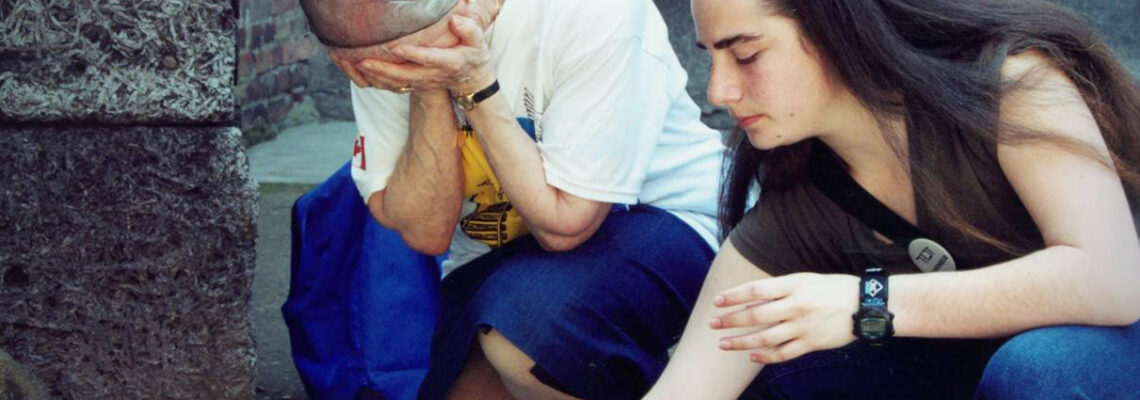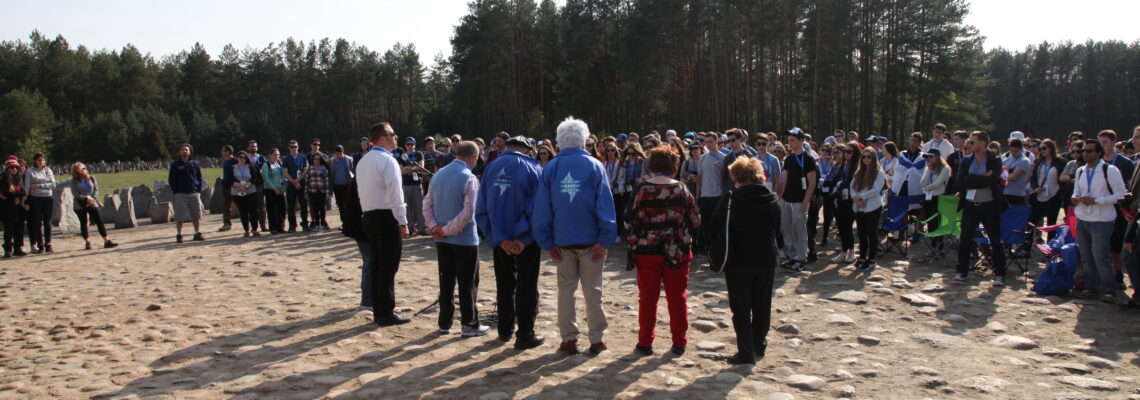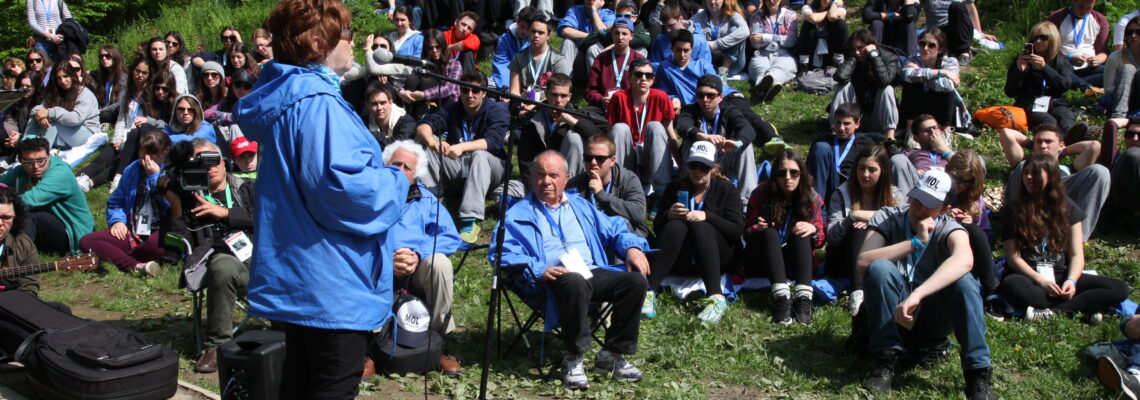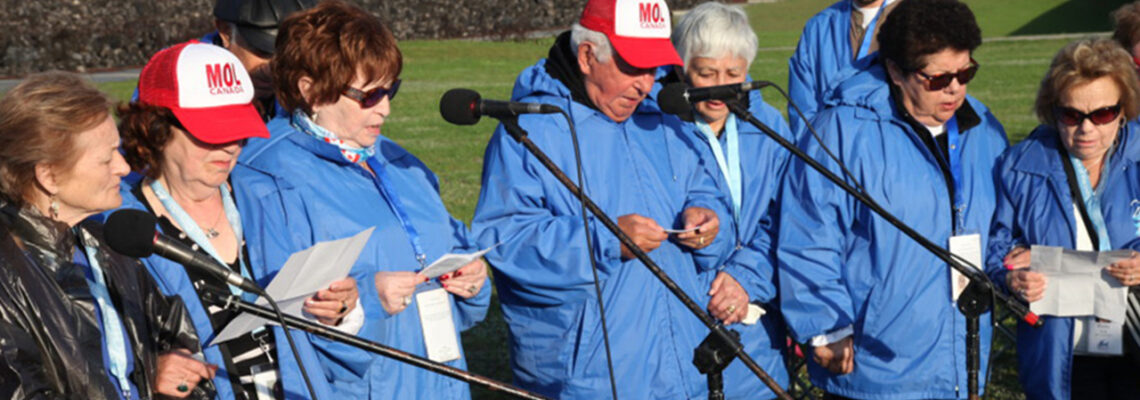The overall goal of The March of the Living Archive Project is to create a historical archive of testimony from the Holocaust survivors who participated on and told their stories during the March of the Living over the last 25 years so their stories are available for future generations.
The MOL Digital Archive Project differs from other Holocaust survivor archives in two major ways:
- Much of the testimony is recorded in front of a live audience of young people, in the location where the survivor’s story actually took place. The transmission of memory from one generation to the next, in the very places their personal tragedies unfolded, adds a unique emotional and educational component not found in many other testimonies.
- The primary purpose of the archive is teaching the broader lessons of the Holocaust – the humanistic and universal values, such as love, tolerance, kindness and compassion – through the individual stories of these survivors.
This project will
- Establish an online, on demand resource of testimonies of Canadian Holocaust survivors’ personal stories.
- Teach the themes such as racism and genocide from a personal experiential approach.
- Create a unique archive of Holocaust survivor testimony through stories told to witnesses in the places where the Holocaust unfolded.
and will teach
- Resilience of Holocaust survivors in working through past trauma and rebuilding their lives and contributing to their communities
- Teaching the importance of nurturing positive emotions and avoiding emotions like hatred and revenge.
- Honouring the Righteous Among Nations who teach us never to be bystanders in the face of injustice, and who teach us hat goodness exists in all parts of the human family. This also reminds us to teach young people to stand up against bullying and defend the too often marginalized.
- To treat with respect and dignity those with disabilities – who were also victims of the Nazis – and to admire their courage and resourcefulness.
- To encourage diversity and celebrate different religions, faiths and backgrounds.
- To instill gratitude for living in a country with democratic values, respect for human rights and justice.
Currently we are
- Sourcing and gathering all the raw (unedited) video footage shot on the March of The Living Canada, dating back to 1988, from across Canada.
- Creating a digital archive of all the raw footage. The footage is being is labeled, categorized and backed up onto hard drives for future, long term use.
- Logging and categorizing all the raw footage into documents that are searchable. Raw footage will be searchable by year, locations, survivor/s names, age, subject matter, theme, videographer, and March of the Living contingent. For example, Toronto, Coast to Coast or Montreal, or if it was part of another March of the Living program such as March of Remembrance and Hope.
- Editing archive footage into short documentary films focusing on individual Holocaust survivor’s stories and experiences.
- Building a website to screen our documentaries. Videos will be tagged and searchable by theme and content.
Website Components:
Content
The primary purpose of the The MOL Archive Project website is to host short form documentaries, ranging in length from 2-15 minutes created from footage shot with Holocaust survivors who participated on the March of the Living. The documentaries will be available on demand and searchable by themes, locations, and by the particular survivor. The site will have a glossary of definitions and important concepts that relate to the Holocaust. Viewers will be directed to other links and reputable websites we partner with, for further, in-depth study of the themes and topics explored in the documentary video.
Interactive components
A FORUM
We will have a moderated forum where subscribers log in and can post comments and have conversations about the films and various topics related to the site.
CURATED CONTENT FROM THE PUBLIC
The curated section of this site will consist of videos, photos and written stories contributed by the public. The content will connect with the themes and spirit of the MOL Archive Project- to further build the archive of testimonies, photos, and videos of Holocaust survivors from all across Canada.



